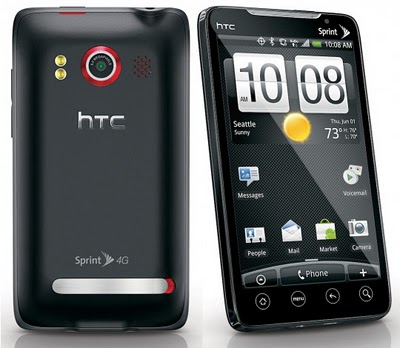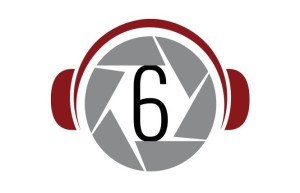The Android Primer: Part 2 – Apple vs. Android
5 min read
 So let’s not beat around the bush. Apple’s iPhone has been the king of the mobile hill for so long that every new piece of technology that is released by Apple’s competitors is almost always dubbed the “iPhone Killer.” And this is a significant thing for Apple when you consider that over the last four years there have been a lot of devices released and there has still been just ONE iPhone. What does that mean? It basically means that while every new device might like to think of itself as a formidable foe to the iPhone the truth of the matter is that for a great many years they have ALL fallen well short of being considered anything close to competitive in the marketplace…until Android. Android has truly changed the game for better or for worse because it has literally usurped the once gigantic presence of Microsoft in a way that Microsoft was never able to do and it was able to convince end users the possibility that there was something out there that might be cooler than Apple. Yep, Android has pulled off the unthinkable and started a new dialogue with consumers who are now asking if Android (and in the larger picture, Google) really can beat Apple at its own game.
So let’s not beat around the bush. Apple’s iPhone has been the king of the mobile hill for so long that every new piece of technology that is released by Apple’s competitors is almost always dubbed the “iPhone Killer.” And this is a significant thing for Apple when you consider that over the last four years there have been a lot of devices released and there has still been just ONE iPhone. What does that mean? It basically means that while every new device might like to think of itself as a formidable foe to the iPhone the truth of the matter is that for a great many years they have ALL fallen well short of being considered anything close to competitive in the marketplace…until Android. Android has truly changed the game for better or for worse because it has literally usurped the once gigantic presence of Microsoft in a way that Microsoft was never able to do and it was able to convince end users the possibility that there was something out there that might be cooler than Apple. Yep, Android has pulled off the unthinkable and started a new dialogue with consumers who are now asking if Android (and in the larger picture, Google) really can beat Apple at its own game.
If you read the previous Android article, we went into some of the history of Android’s conception and invasion of the market. But the invasion has not come without its confusion to the consumer. After all, what is it really? Is it a phone? Or is it an operating system? Who owns it? And how can this idea of a customizable mobile experience change the way that the rest of the marketplace looks at smart phones? Well what Android has successfully done through the marketing of various vendors has been to introduce the idea of a viable alternative to the iPhone. We’re not just talking about an alternative that gets a pat on the head from Apple to the usual list of “haters” that have fallen well short of competitive. But now there’s an alternative that is now every bit as robust as the iPhone – an iPhone that was once considered nearly untouchable in every possible facet of the mobile experience. In the past, this idea might have been laughable considering that Google hasn’t necessarily delivered a single competitive device per say. What Google has introduced, however, is the idea of the open sourced mobile phone market. What is significant about this is that when you consider that the only other elite competitor in the market is the closed sourced operating system owned by Apple you start to get the idea that the general public is starting to move away from the idea of elitism (at least the way that Apple is now being portrayed). Especially when you consider that what drives the end users these days is a desire for larger community, crowd sourcing for information, and the notion that everyone should be allowed to customize their web experience (as seen in the current web 2.0 models popularized in Facebook and Twitter).
This paradigm shift is so impressive that it makes one wonder how a company that started out as a search engine for the web could pull of such a shift in the way that the average phone user would look at this new market and actually be sold on the idea that Steve Jobs and Apple could be…gasp…evil. If Jobs did anything in the recent months to convince us that he was still the Guru of Tech Chic, it was lost when he busted down the door of CEO of Gizmodo to take back his “stolen” technology purchased for $5,000. What Steve Jobs proved was that, in a few short years, he turned into Bill Gates. And that’s okay so long as everyone realizes that this is the order of things. Apple is no longer the maverick it once was. They can’t be. After all, they are THE established tech standard that everyone else on the planet has been gunning for as soon as they were crowned the kings of software world this year. And so long as they are the masters of the technology universe this will be their plight.
So why on earth am I spending so much on this without having even gotten to an actual review of either the new iPhone 4 or one of the new heirs to the throne? Well, the main reason has to do with the confusion. While everyone is now comfortable with the integration of Google, Facebook and Twitter into their mobile experience, what is more and more pertinent is whether or not this experience can actually be enhanced through these mobile devices.
So let’s be honest, shall we? While Apple set the standard, what they failed to realize, due to their arrogance, is that Android has now caught up to them and, in many instances, have delivered a superior product to, yes even the iPhone 4. Don’t believe me? Go to YouTube and search for user tests of the HTC EVO (and others) running against the newly released iPhone 4 on comparable speed tests over WiFi and at 3G and you will find that it is trailing behind the high end Android devices not to mention the plethora of other problems that are plaguing the iPhone during its launch when it comes to call quality of its left handed users…etc. That’s not to say that iPhone isn’t a very good phone with a very specific experience designed for those who know what they want, but it isn’t THE standard anymore. In fact, the new iPhone 4 is not even the 2nd best phone on the market in terms of raw power anymore as it already falls behind Sprint’s EVO, Droid Incredible and will also fall behind to the soon to be released Droid X (which should easily win that comparison hands down in the coming months with its crazy specs alone).
So if you’re in the market for a new cell phone, it’s a wide open world. Android isn’t just an alternative, but a new leader. And that’s not just wishful thinking anymore. If Apple wants to keep up, it had better market it’s product as something other than a status symbol. After sticking with AT&T, Apple is proving that it’s just a Mercedes without an engine. And the loyal users are starting to sound ridiculous by claiming that they’re okay with a car that doesn’t always run the way it was intended. That’s like saying that they didn’t buy the car so that they could drive it. They bought it so they could sit in their driveway and listen to the radio.





